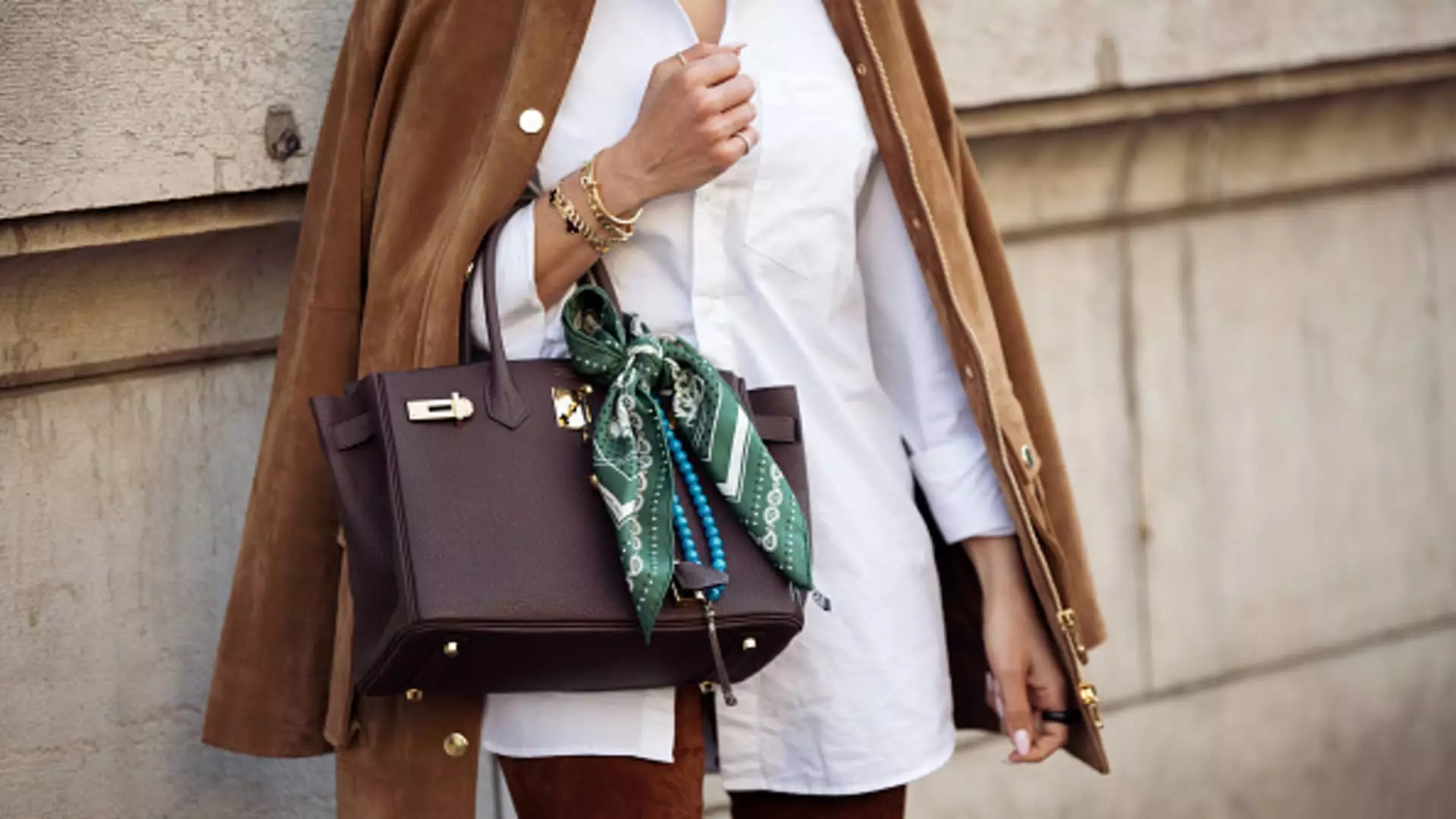In a world where luxury tends to serve as a refuge from everyday economic pressures, Hermès is about to shatter that illusion for American consumers. The iconic French luxury brand is raising its prices in the United States starting May 1, ostensibly as a reaction to tariffs imposed by the Trump administration. This move is not just about price tags—it signals a broader concern for consumers navigating an increasingly challenging (and expensive) marketplace.
The era of shrinking luxury for a select few is upon us, and it’s time to question who truly benefits. Hermès’ price increases aim to “fully offset” the impact of a universal 10% tariff specifically tailored to the American market. This is not merely a business adjustment; it is a reflection of how global politics directly affects consumer behavior in a capitalist economy. It raises the question: is the American consumer ready for a standing ovation or a collective sigh of despair?
Luxury’s Shifting Landscape
The manipulation of pricing in the luxury sector casts the spotlight on the power dynamics at play. Hermès’s recent ascension to the title of the world’s largest luxury firm by market capitalization—overtaking LVMH—is a testament to its brand strength but masks a troubling reality. With consumers having approximately 17% of their purchasing power inhibited by rising prices, they will face increased costs on luxury items that were once considered gateways into status.
While many argue that the affluent customers who gravitate toward Hermès are more insulated from such price shocks, this rationale presents a narrow view. The broader economic ramifications hint at an unsettling trend where luxury becomes further alienated from the general populace. Wealth division is accelerating, and the Hermès price hike is merely a reflection of that growing chasm.
Hollow Growth Amid Real Challenges
Despite reporting an 11% sales growth in the Americas, it is crucial to interpret those figures carefully. When the report indicated a slowdown from a robust 17.6% growth in the previous quarter, one must be concerned about what lies ahead. Analysts at Deutsche Bank and Citi touted the results as “robust” and “respectable,” but who are these terms meant to comfort? As luxury brands confront headwinds like reduced consumer spending due to global economic insecurity, the projected growth appears less optimistic than it might initially seem.
For certain sectors of the economy, passing along higher import costs can lead to an increase in retail pricing. Still, Hermès’s move sends a risky signal about what happens when perceived wealth begins to decay. The lifestyle of affluence is under significant threat, and luxury retailers may soon find that their high-spending clientele is warily tightening their purse strings.
Consumer Sentiment Fractured by Political Decisions
Americans are on edge, entangled in a web woven by trade policy that impacts everything from electronics to luxury handbags. The harmonization of tariffs appears to serve a narrow political agenda rather than genuinely benefiting the American public. As Hermès plans its price adjustments, President Trump’s administration’s policies are forcing brands to make choices that will ultimately bulldoze over the consumer experience.
This faulty nexus of politics and consumerism dismantles the very allure of luxury. It posits that wealth and opulence are dictated by external forces instead of individual choice. Luxury brands like Hermès could not exist without a willing consumer base, yet they are the ones dictating the terms of engagement with their elevated prices. And in that scenario, who suffers? The consumer.
The Inevitable Reaction: Watching the Velvet Rope Tighten
Hermès may just be the canary in the coal mine for the broader luxury market. If the current trajectory continues, average Americans may find themselves priced out of even the most modest indulgences. The psychological and emotional effects of watching once-desirable items become luxuries beyond their reach cannot be underestimated.
The impending price hike may soon transform luxury from an aspirational ideal to a contentiously divined realm—where only a select few are deemed worthy of entry. The dynamics of capitalism dictate that the rich shall get richer, but as Hermès and others adjust their pricing to combat external pressures, American buyers must brace themselves for what comes next: an economy where the velvet ropes close tighter around the affluent and their exclusivity.

